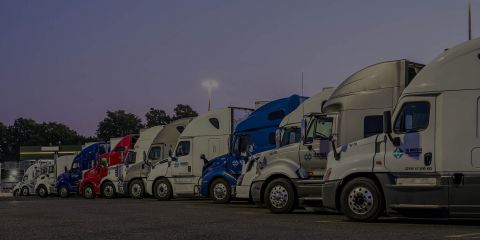2025
How 3PL Logistics Ensures Food and Beverage Freshness and Compliance

In the fast-paced food and beverage (F&B) industry, maintaining product freshness while adhering to strict safety standards is essential.
The challenge here often lies with scaling, because as consumer demand for high-quality perishables grows, businesses must turn to third-party logistics (3PL) providers for temperature-controlled storage, real-time tracking, and regulatory compliance.
The Role of 3PL in Ensuring Food Freshness
Food and beverage logistics is a high-stakes endeavor. Products are time-sensitive and prone to spoilage, requiring expert handling, efficient delivery, and specialized warehousing. Here's how 3PL providers help preserve freshness.
Temperature-Controlled Warehousing and Transportation
3PL facilities are equipped to store goods at optimal temperatures, from frozen to refrigerated or ambient, which is essential for extending the shelf life of items like produce, dairy, meat, and beverages.
Additionally, transportation fleets with refrigerated and multi-temperature capabilities ensure consistent temperature from pickup to delivery.
Efficient Supply Chain Management
3PL providers streamline operations by optimizing routes and maintaining strict delivery schedules, which help preserve freshness through the timely and reliable movement of goods.
Handling, sorting, and loading processes are also coordinated and meticulous to prevent delays and temperature fluctuations.
Real-Time Tracking and Reporting
To-quality 3PL providers leverage high-tech Warehouse Management Systems for real-time temperature logs, transit status, and digital reporting. This information allows food suppliers and retailers to monitor quality, respond to issues quickly, and maintain compliance records for audits.
Ensuring Compliance in Vancouver’s Regulatory Landscape
Vancouver follows strict food safety and transportation regulations enforced by the Canadian Food Inspection Agency (CFIA) and Safe Food for Canadians Regulations (SFCR).
To meet these expectations, many facilities implement globally recognized safety frameworks such as HACCP (Hazard Analysis and Critical Control Points) and SQF (Safe Quality Food) certification.
HACCP provides a systematic approach to identifying and controlling potential hazards at critical points in the logistics process. SQF goes a step further, offering a rigorous quality management system that ensures food-grade conditions are upheld across every touchpoint.
These programs are particularly valuable in Vancouver’s regulatory environment, where oversight and documentation are critical. By incorporating HACCP protocols and operating within SQF-certified facilities, 3PL providers help ensure full compliance in areas such as:
- Proper labeling and traceability
- Allergen controls
- Temperature monitoring
- Recall readiness
Partnering with a 3PL that prioritizes food safety certifications and is familiar with local regulations supports smoother inspections, reduces the risk of non-compliance, and upholds brand integrity in a competitive market.
Keeping Products Safe, Fresh, and On Time
As the food and beverage industry grows more complex, 3PL logistics plays a vital role in maintaining freshness and ensuring regulatory compliance.
In regions like Vancouver, where food regulations are particularly stringent, working with experienced 3PL partners ensures that both freshness and compliance are built into the foundation of your supply chain.
Based in Vancouver, British Columbia, Canada, 18 Wheels relies on experience and integrity to make customers happy and remain on the cutting edge of shipping and logistics management.
If you have any questions about this article or you would like to talk to us about your shipping needs, please call us at (604) 439-8938.
